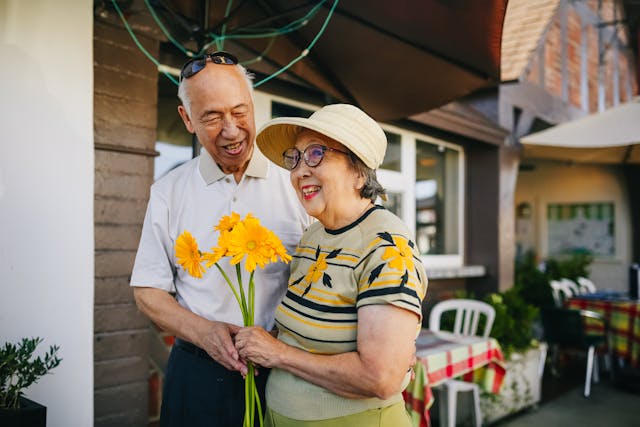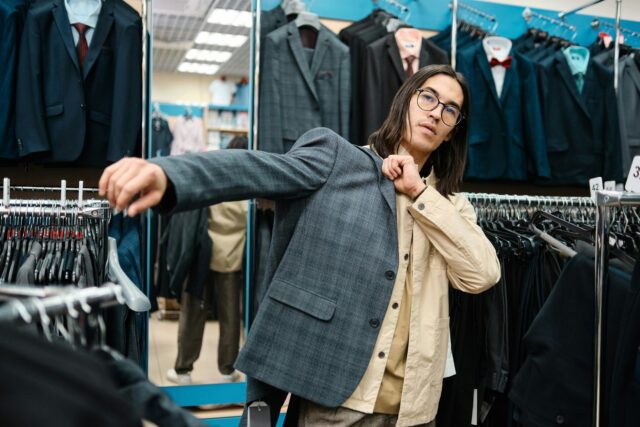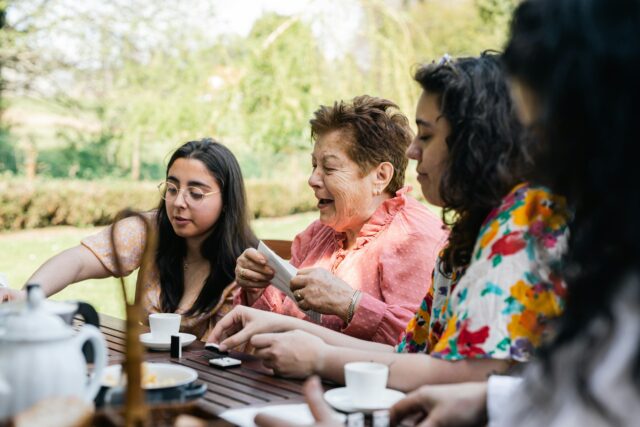It’s always a little annoying when older people go on about the “good old days.”

After all, previous decades had just as many problems as we have today, they just looked a little different. However, it is true that society functioned a bit differently then. People were more considerate, less overtly rude, and generally just less unpleasant to deal with. Here are some of those old school practices that used to be pretty common and aren’t anymore, even though they really should be.
1. Writing handwritten thank-you notes

In a world of quick texts and emails, a handwritten thank-you note feels thoughtful and personal. Taking the time to write out a few sincere words can make someone’s day. It’s a simple gesture that shows gratitude in a meaningful way. Receiving a real note in the mail feels special, and it’s a small effort with a big impact.
2. Dressing up for certain occasions
 Source: Unsplash
Source: Unsplash There was a time when people dressed up just to go out to dinner or even catch a movie. Dressing up shows respect for the event and makes it feel a little more special. These days, it’s nice to break out something nice and feel a little more put together. Putting effort into an occasion, big or small, adds a touch of excitement to the everyday.
3. Saying hello to strangers

Remember when people would pass by on the street and give a friendly nod or a quick “hello”? Acknowledging each other brings a sense of community that feels rare now. It’s a small interaction that can brighten someone’s day and create a friendly environment. A simple greeting can make neighbourhoods and cities feel warmer and safer.
4. Prioritising family mealtime
 Source: Unsplash
Source: Unsplash Life gets busy, and family dinners can feel impossible to fit in, but they used to be a daily ritual. Sitting down together, even just for half an hour, can strengthen family bonds and give everyone a break from screens. It’s an opportunity to catch up, share stories, and connect. Bringing back family meals reminds us of the importance of quality time with loved ones.
5. Holding doors open for people

It might seem small, but holding the door open is a simple act of kindness that never goes out of style. It’s not about gender—it’s about being polite and considerate of those around you. When someone holds the door open, it feels like a little reminder that people are watching out for each other. A small gesture, but it makes public spaces feel more welcoming.
6. Using “please” and “thank you” often

Politeness can feel like a lost art, especially in the fast-paced world we live in. A quick “please” and “thank you” shows respect and appreciation, reminding people that you notice their efforts. These words may be small, but they can shift the tone of any conversation. Bringing back common courtesies can help make interactions feel a bit warmer.
7. Bringing a gift when invited to someone’s home

Once upon a time, it was standard to bring a little something—a dessert, wine, or flowers—when visiting someone’s home. It’s a thoughtful way to show appreciation for their hospitality. Even a small token reminds the host that their effort doesn’t go unnoticed. It’s a tradition that shows gratitude and brings a touch of warmth to gatherings.
8. Making phone calls instead of only texting

Texting is convenient, but sometimes a real conversation is exactly what we need. A quick phone call feels more personal and allows for meaningful, real-time interaction. Hearing someone’s voice brings a layer of connection that texting can’t match. Bringing back phone calls could help us feel more connected, even from afar.
9. Respecting personal space and boundaries

There was a time when personal space was highly respected, and people didn’t feel the need to overshare or pry. Respecting boundaries and giving people space allows for more comfortable interactions. Personal space isn’t just physical; it’s also about respecting everyone’s time and energy. Honouring boundaries can lead to healthier and more respectful relationships.
10. Sending holiday cards
 Source: Unsplash
Source: Unsplash There’s something special about opening a real card from a friend or family member during the holidays. It’s a reminder that someone took the time to think of you. Holiday cards, even just once a year, bring a little joy and personal connection. Receiving a card makes people feel remembered and valued in a way digital messages don’t quite match.
11. Showing up on time

There used to be a sense of pride in being on time, and it showed respect for other people’s schedules. Punctuality means you value your time as well as theirs, making interactions smoother. Showing up when you say you will is a sign of reliability and respect. Being on time is a small habit that makes a big difference in relationships.
12. Respecting elders and addressing them formally
 Source: Unsplash
Source: Unsplash Addressing elders with respect—like using “Mr.” or “Mrs.” or even just acknowledging their experience—used to be common. It’s not about hierarchy; it’s about showing appreciation for those who have been around a little longer. Treating elders with respect reminds us of the importance of wisdom and experience. It’s a practice that teaches humility and gratitude.
13. Listening without interrupting

In a world where everyone’s eager to share their own story, listening has become rare. Letting someone finish their thought shows respect and creates space for a real conversation. Good listening is a lost skill that strengthens relationships. When we listen fully, we show that we genuinely care about what other people have to say.
14. Returning borrowed items promptly

Whether it’s a book, a dish, or a tool, returning things on time shows appreciation for someone else’s belongings. It’s a small way to show that you respect the person who trusted you with their things. Promptly returning borrowed items keeps relationships smooth and based on mutual respect. It’s a practice that builds trust and shows consideration.
15. Expressing appreciation in person

These days, appreciation often comes through texts or social media, but a face-to-face “thank you” feels more genuine. Taking a moment to express gratitude in person shows that you really mean it. Personal appreciation makes people feel valued and seen. Bringing back in-person appreciation can create stronger bonds and more meaningful connections.




